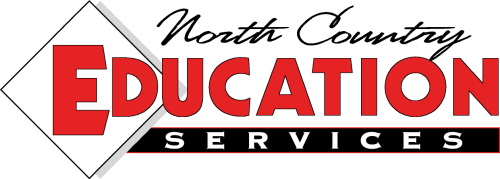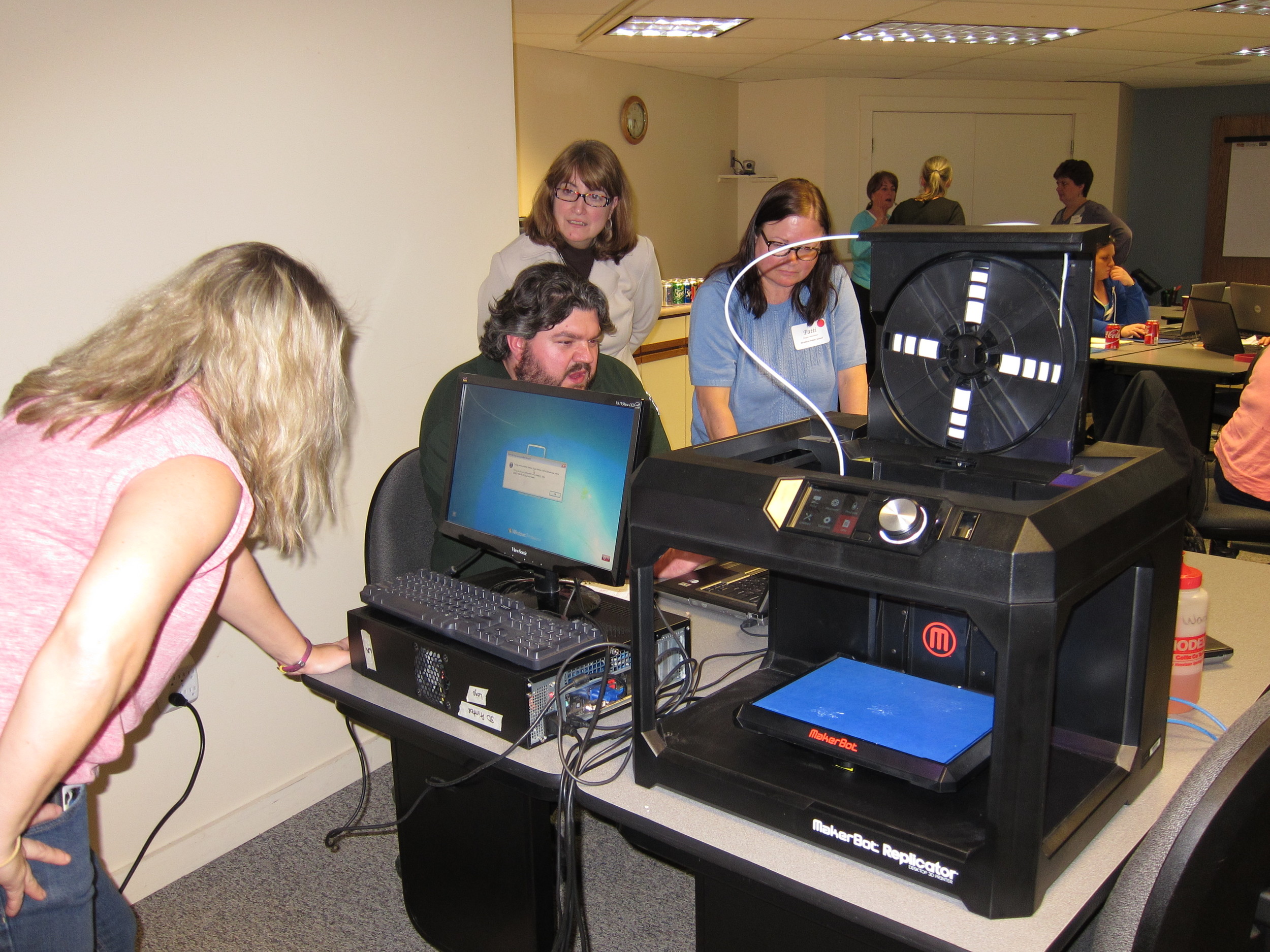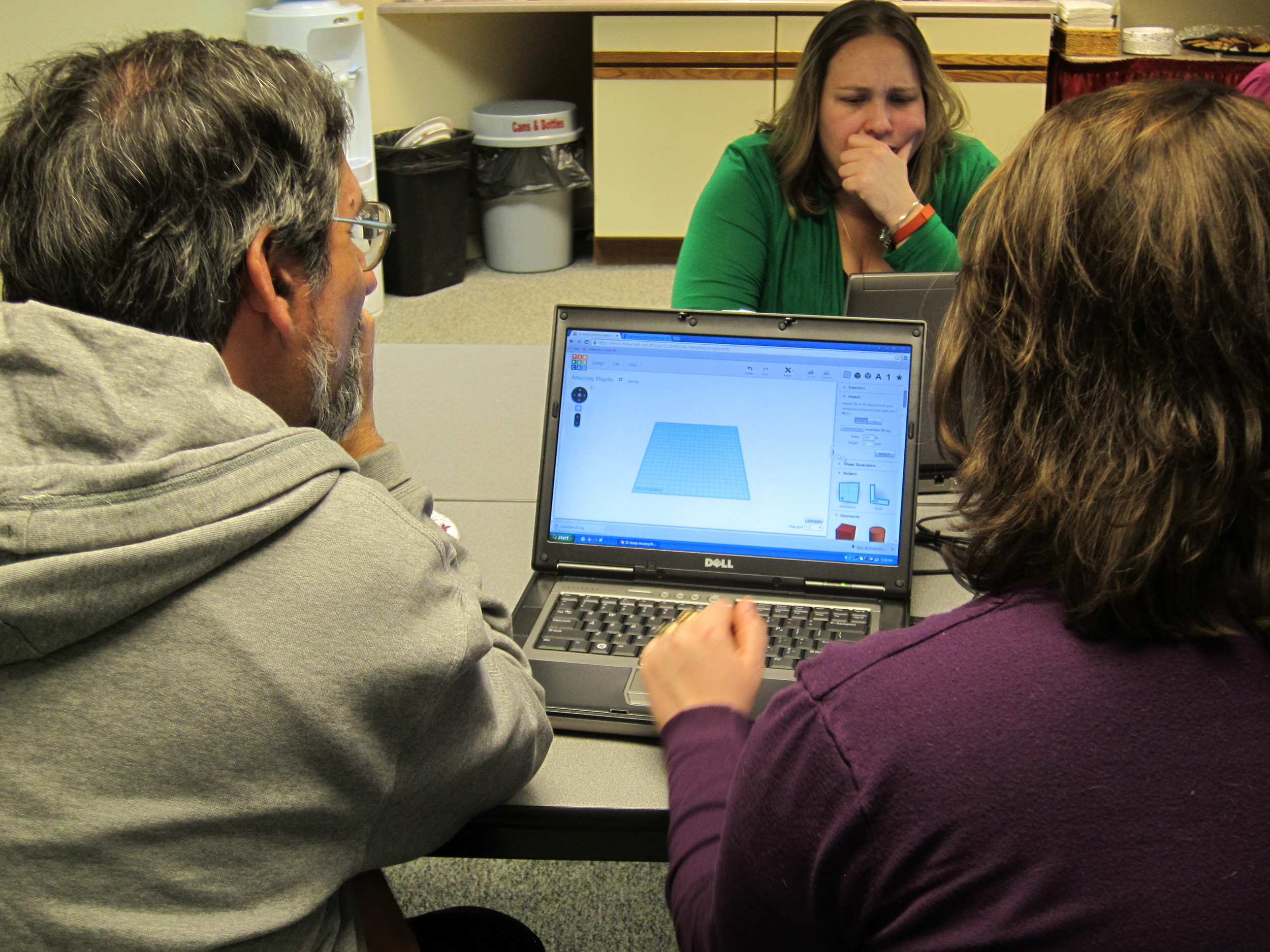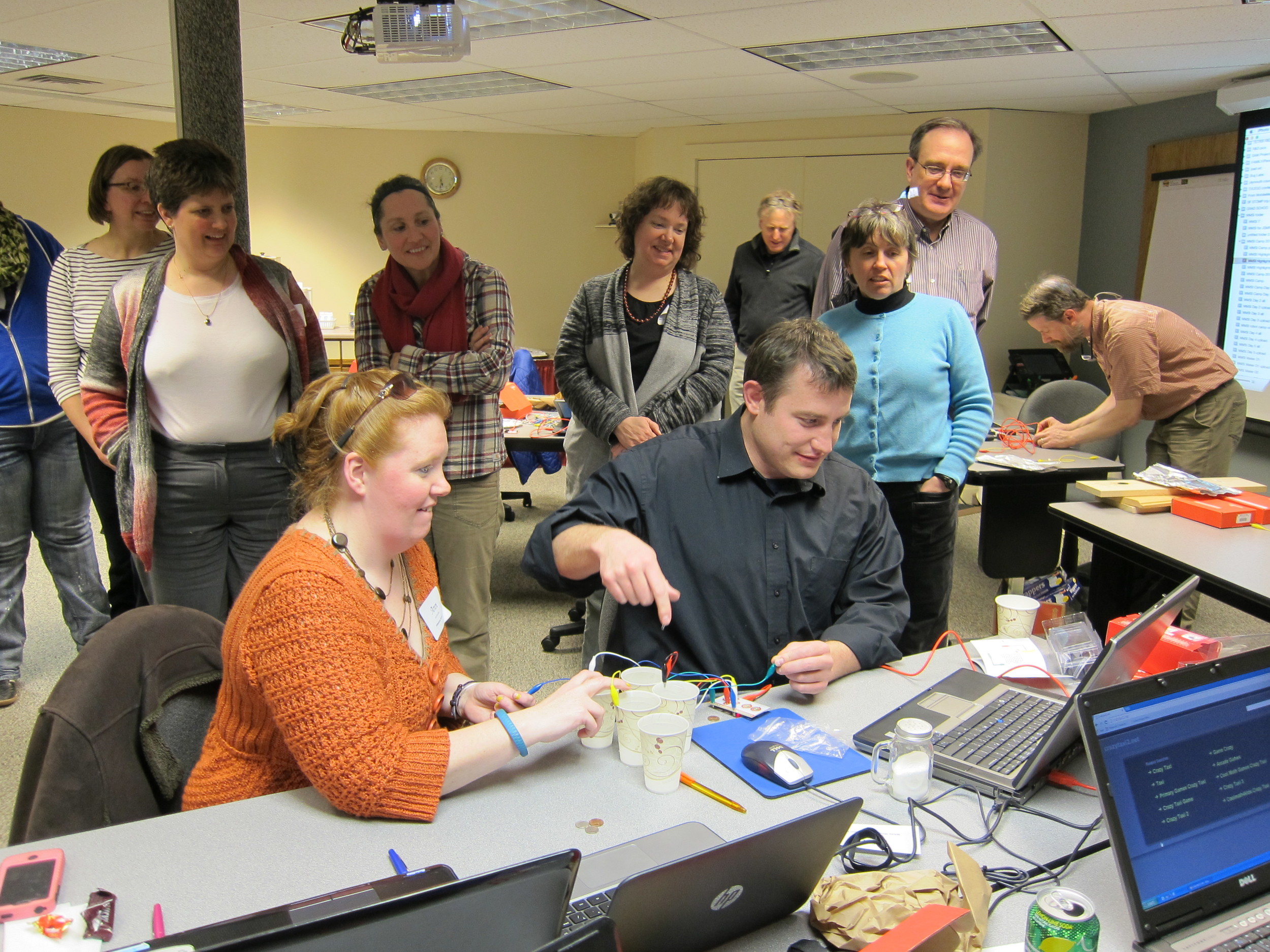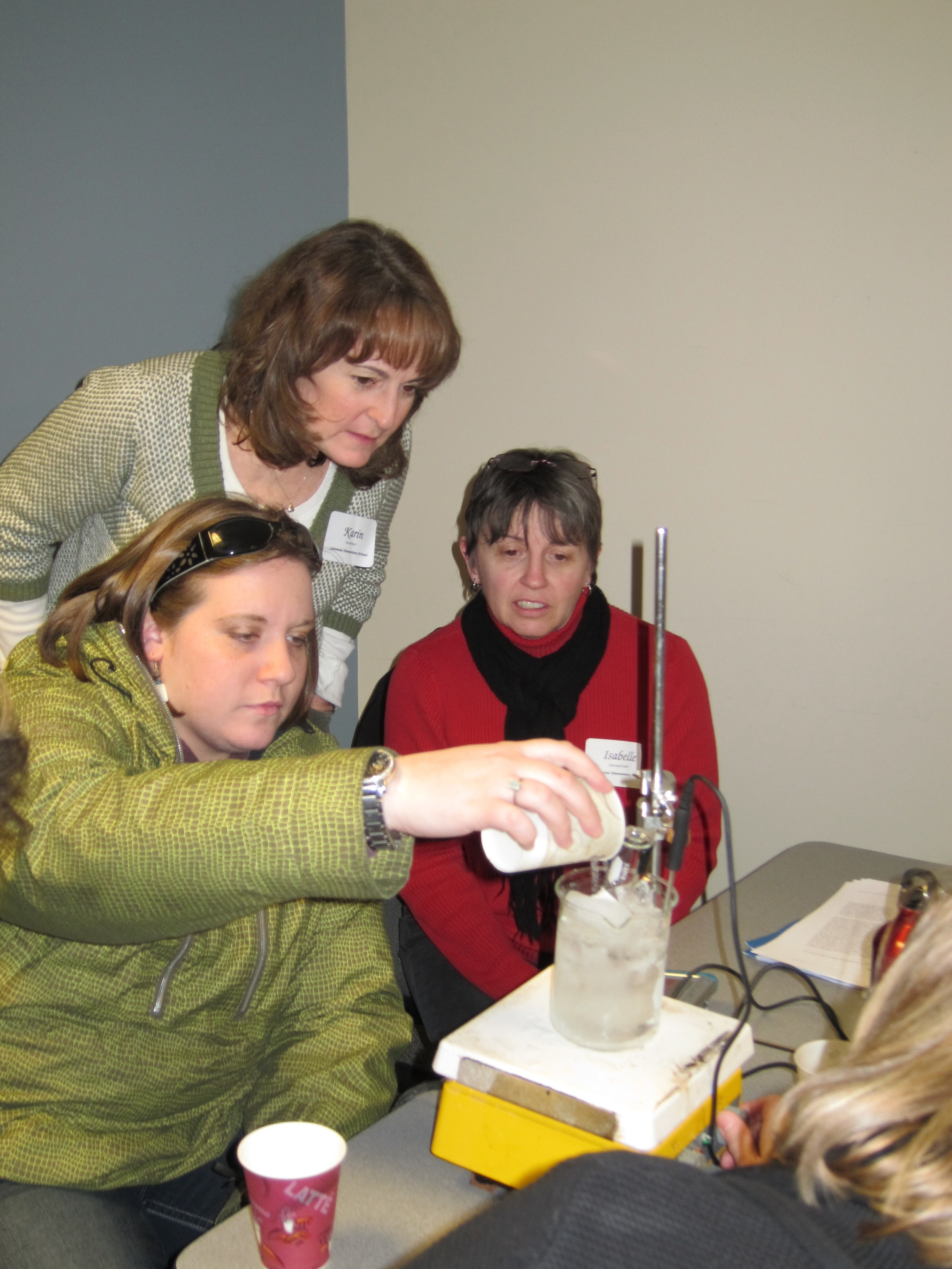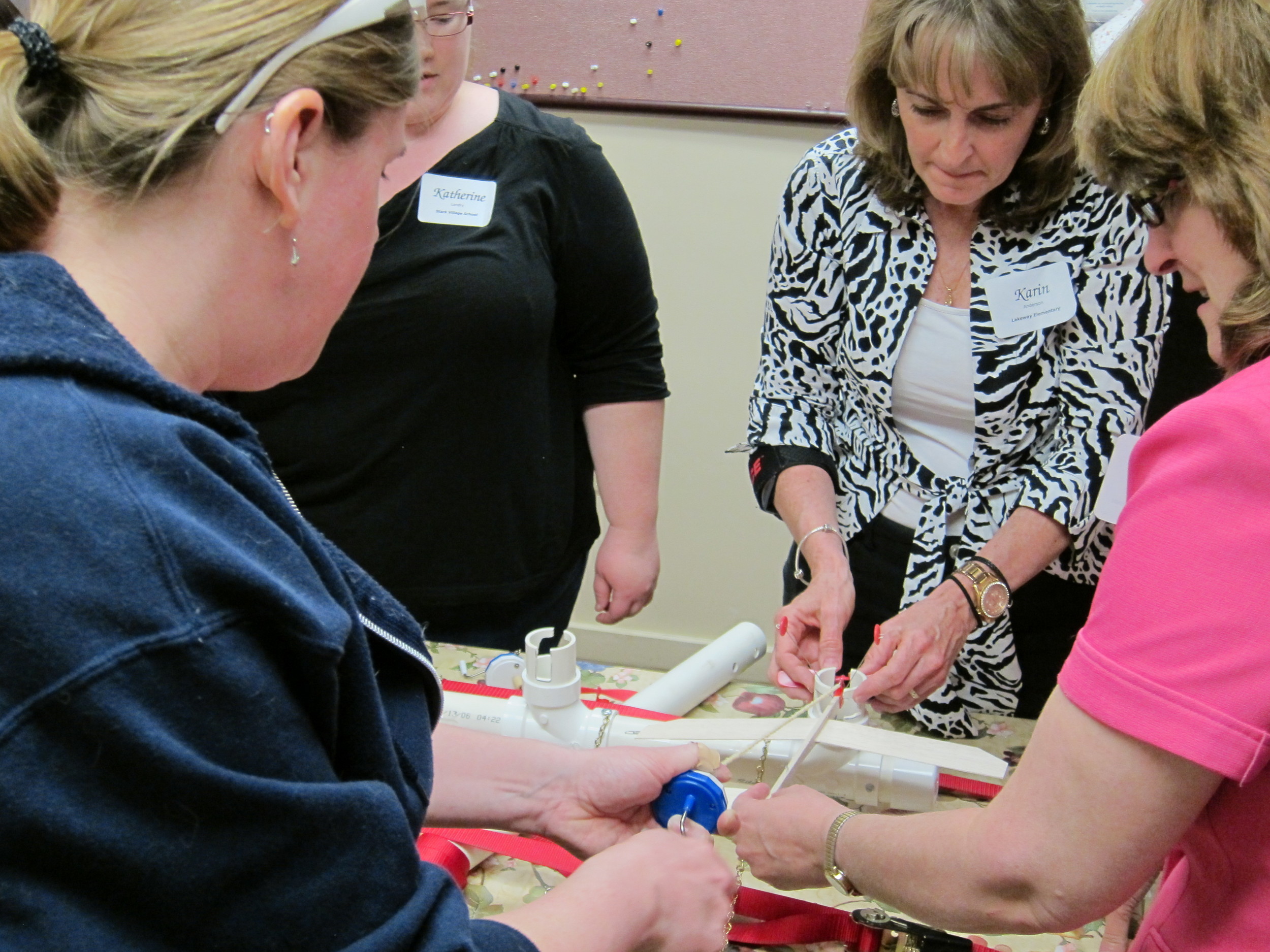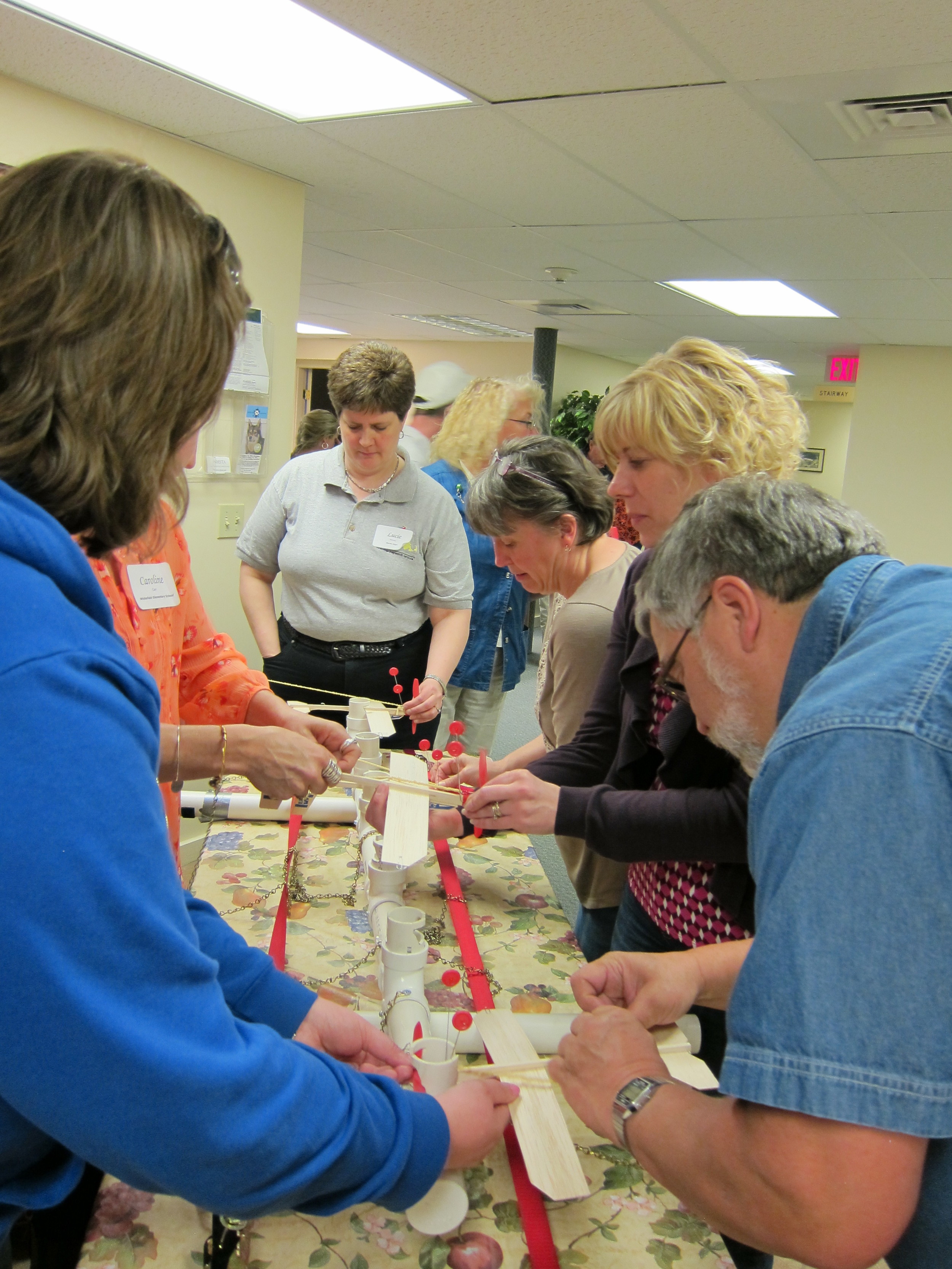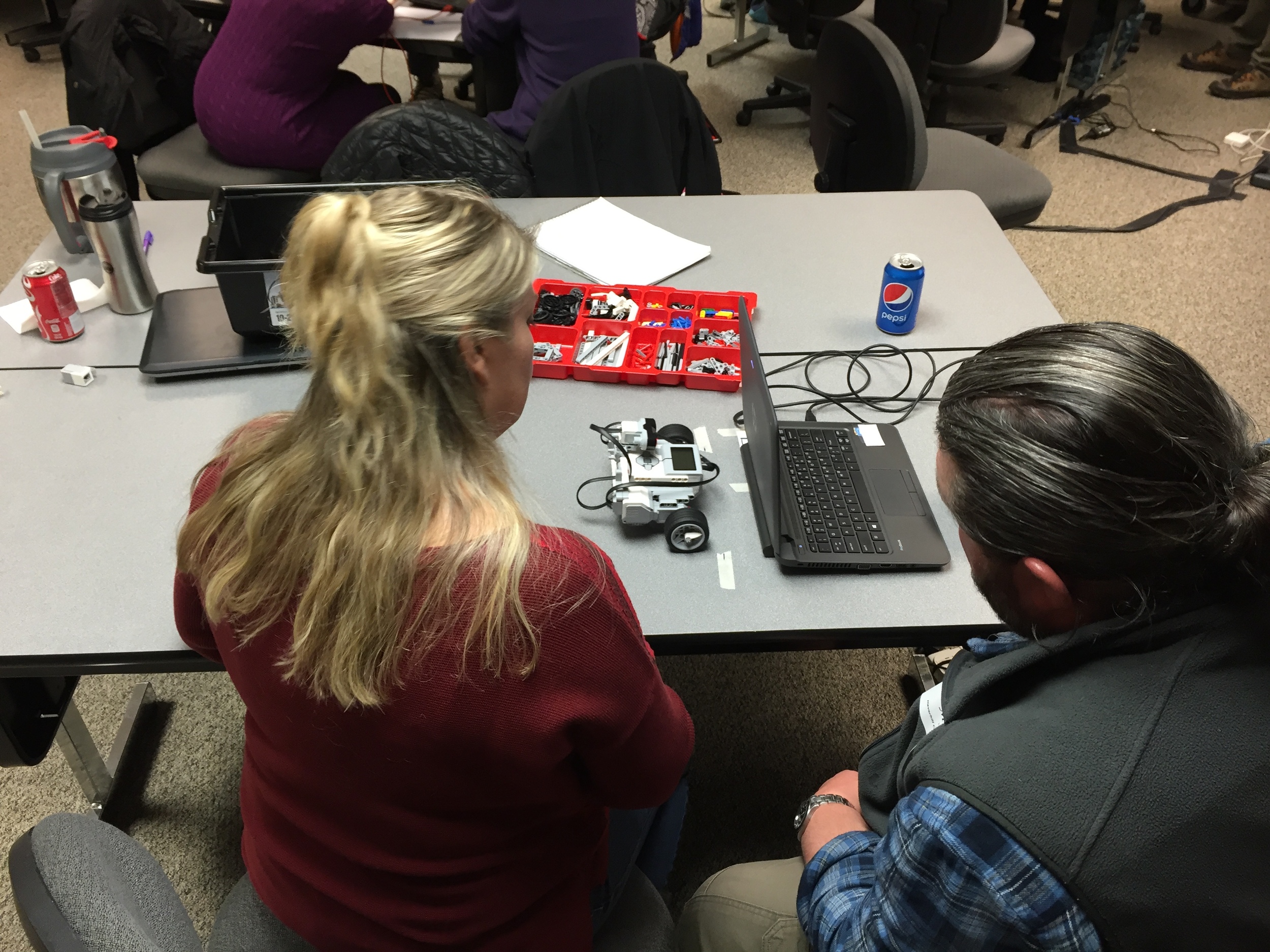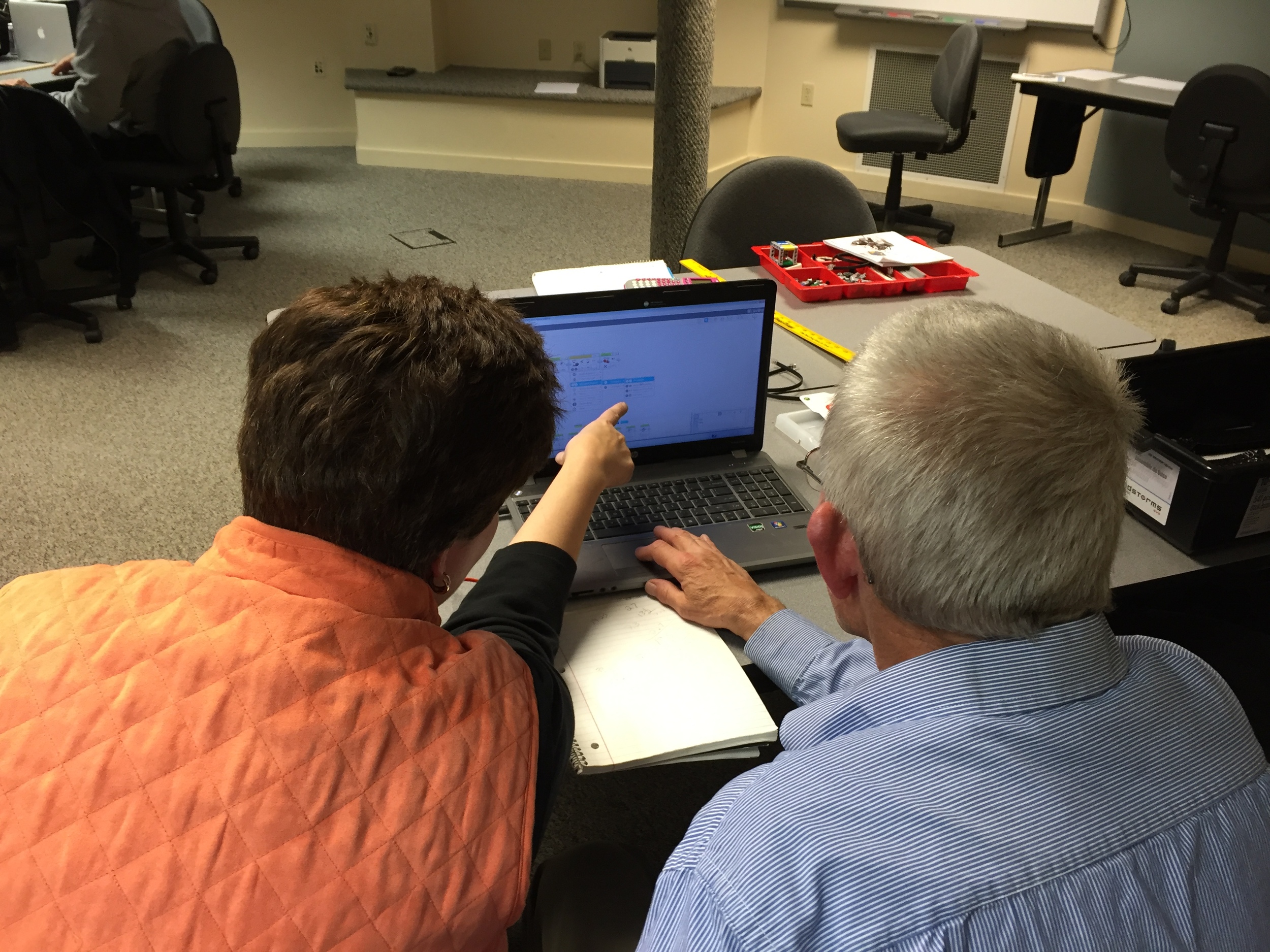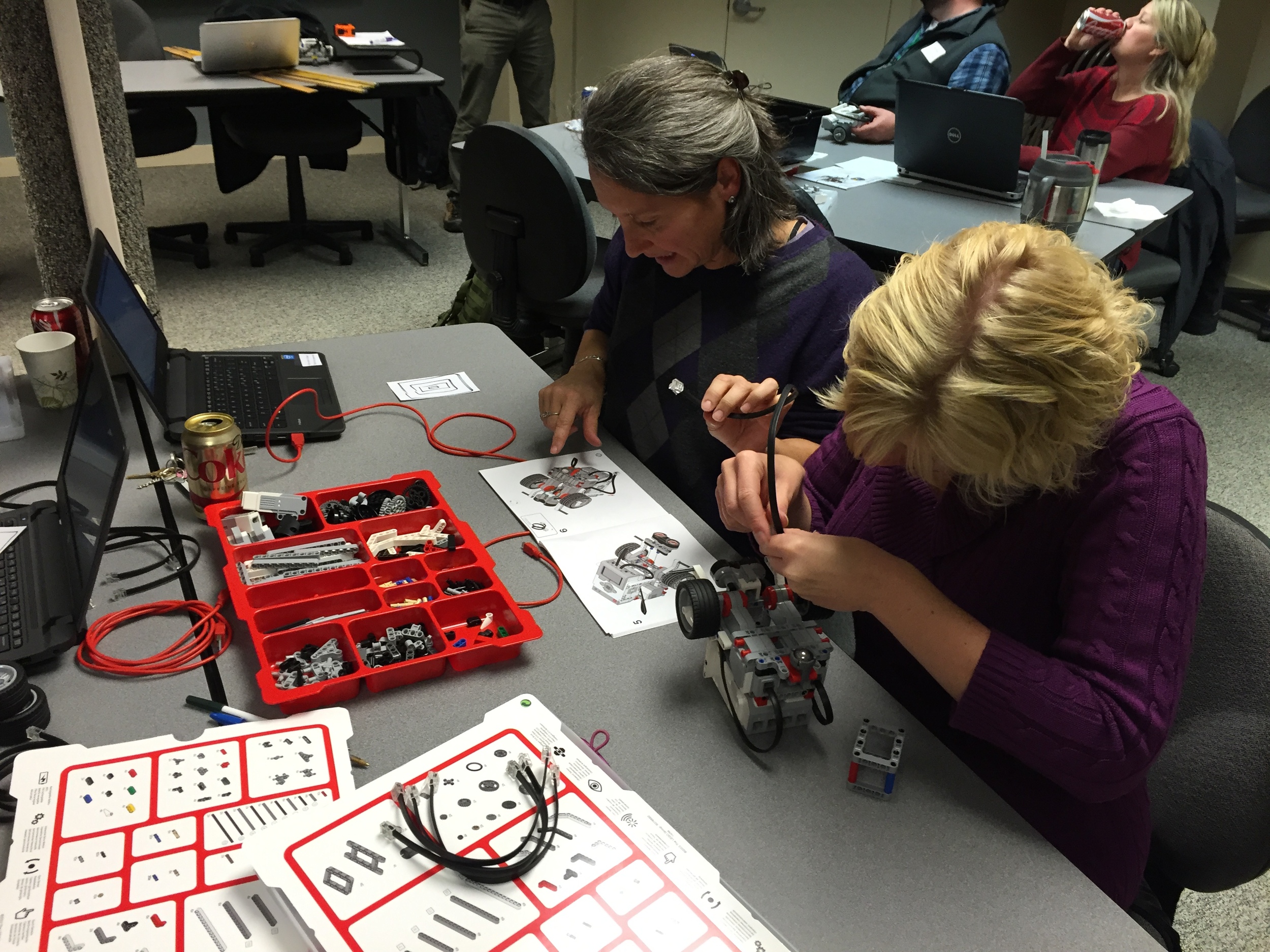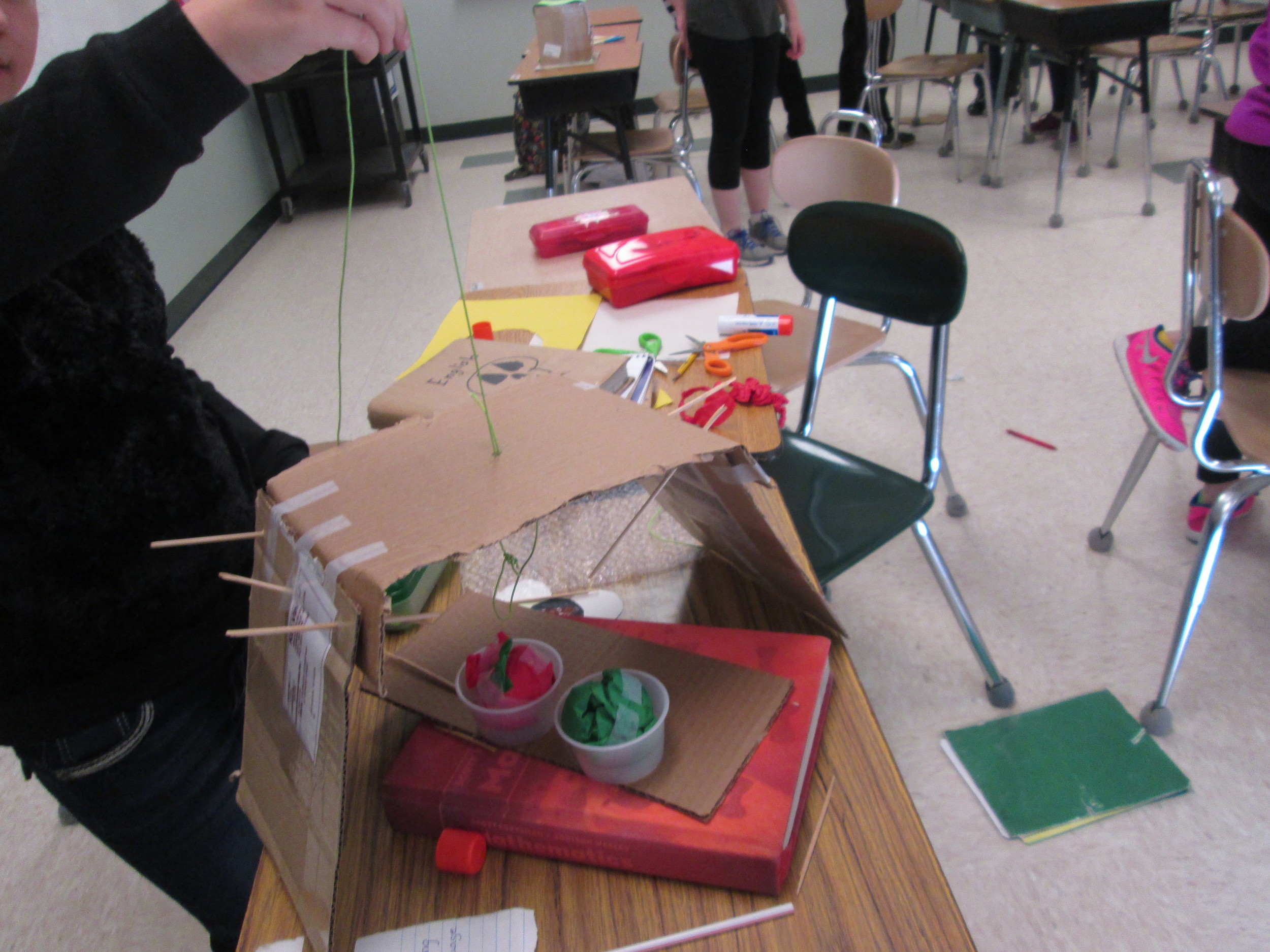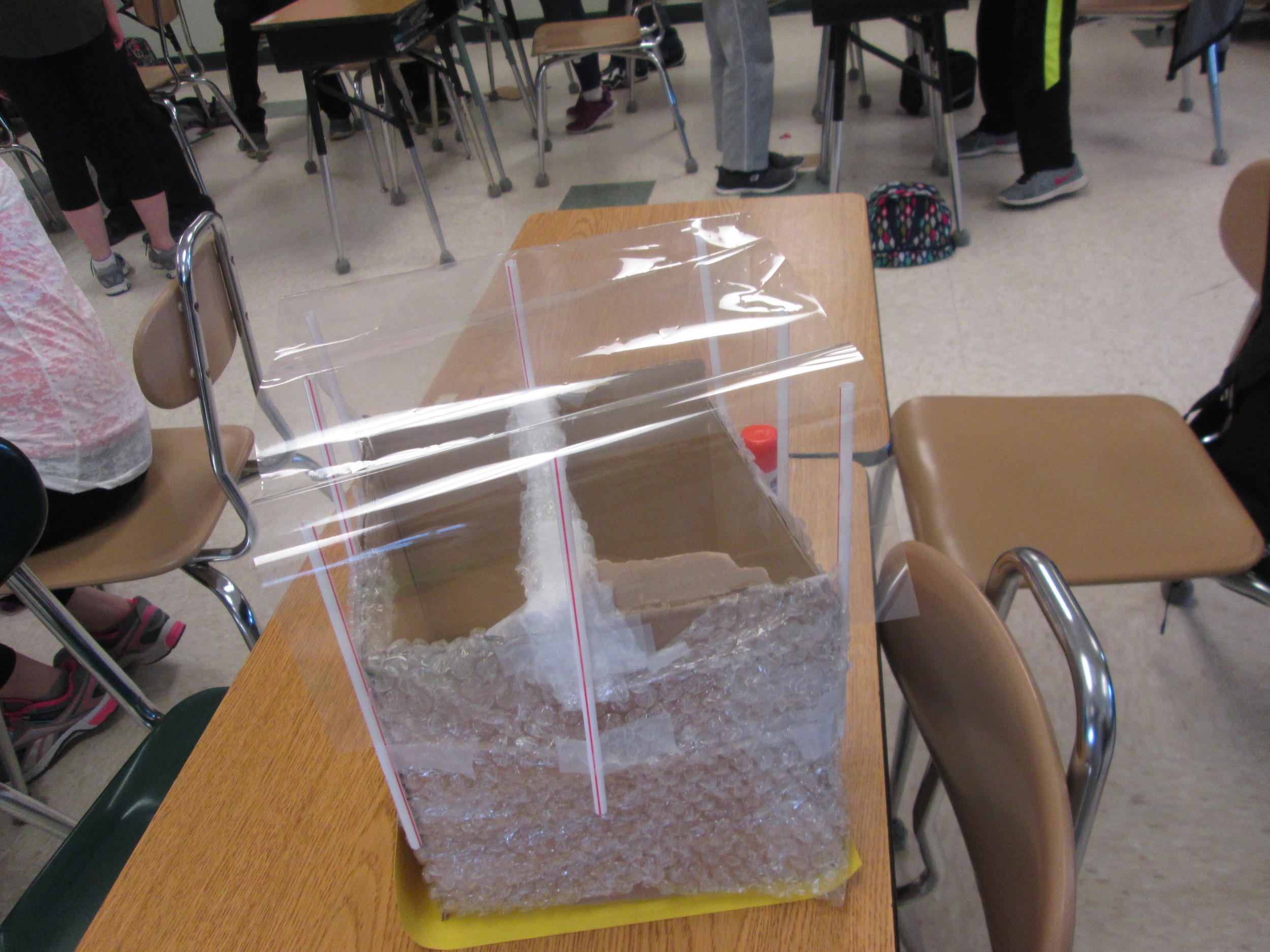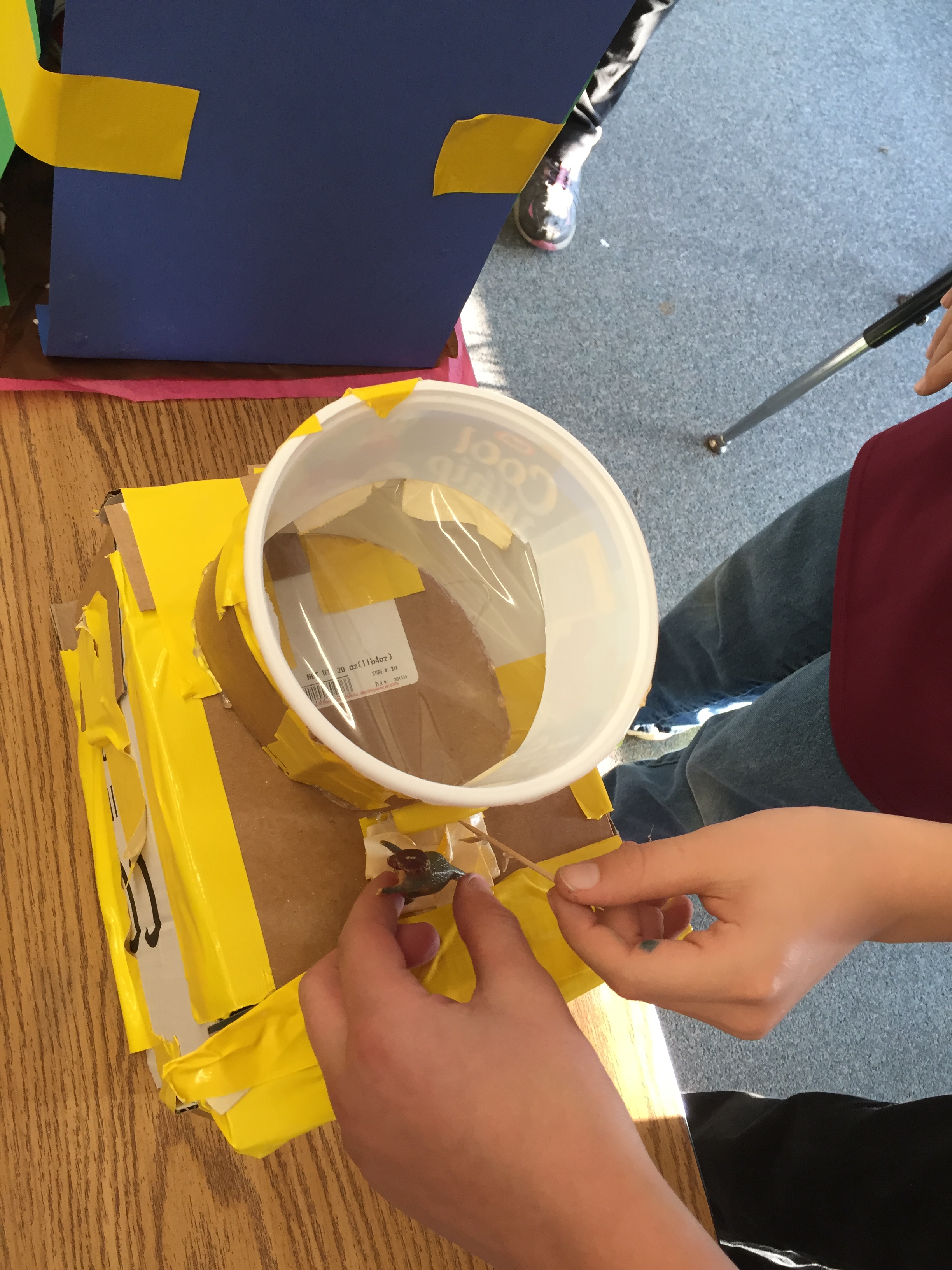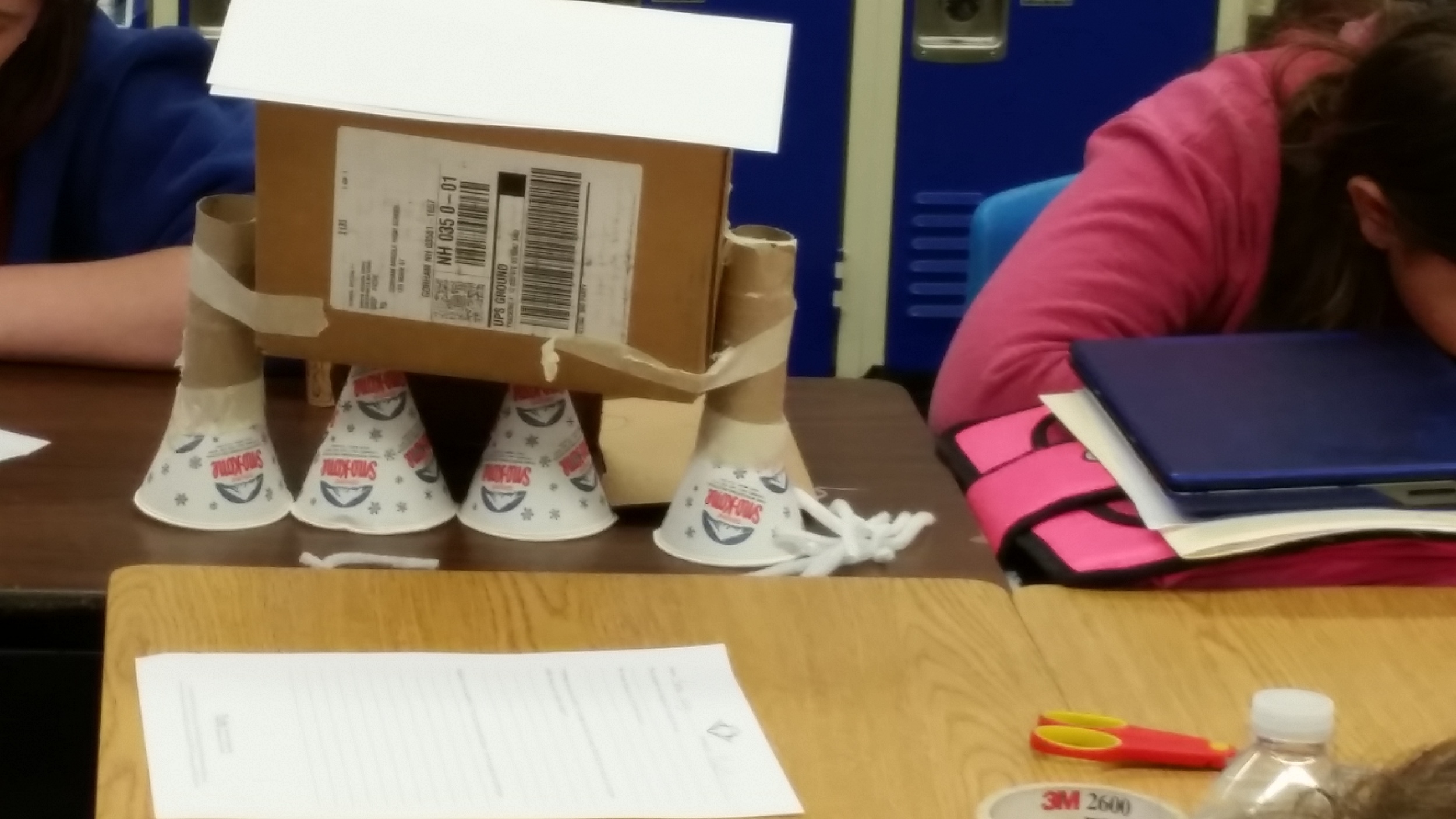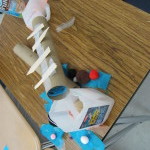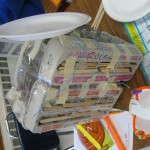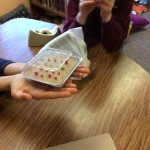About this project
In July 2014, the partnership of NCES, WMSI, and the science department of Plymouth State University was awarded a Math Science Partnership grant from the NH Department of Education to provide professional development to North Country schools for STEM education. Awarded through the Gorham Randolph Shelburne Cooperative School District, the project,Transforming STEM Instruction in North Country Classrooms, began in October 2015 with a monthly evening series for educators with a focus in engineering design. The project also provides school-based professional development on the Next Generation Science Standards and how to integrate STEM activities in the classroom. In the summer of 2015, the project supported a three-day High Altitude Balloon Challenge (HAB) for a 6 educators and 12 high school students. The summer institute resulted in a HAB launch at Profile High School in November. The mixed group of students, lead by a team at Berlin High School building a new payload design, is expected to launch in the late spring of 2016.
The initiative focuses on STEM through the lens of engineering design and these three core ideas:
Learn more about engineering design in the Next Generation Science Standards.
Grades K-2
Grades 3-5
Grades 6-8
Grades 9-12
The advisory team for this project is comprised of:
- David Backler, Principal, Gorham Middle High School (Project Director, LEA Fiscal Agent Representative)
- William Church, White Mountain Science Inc, Executive Director (Project Lead Learning Facilitator)
- Russell Faux (Project Evaluator)
- Dan Gorham, Principal, Colebrook Elementary School
- Dr. Art Hammon, Program Coordinator CSU-NASA/JPL Education Initiative (Project Consultant)
- Sandy Kent, NHDOE liaison for Competency Based Assessment (Project Consultant, Learning Facilitator)
- Todd Lamarque, Principal, Lancaster School, Principal representative on the Governor's STEM Education Task Force
- Lori Langlois, Executive Director, North Country Education Services (Project Manager)
- Steve Roberts, science educator, independent science consultant, immediate past-president of NH Science Teachers Association (Learning Facilitator)
- Paul Williams, retired North Country science educator, science consultant (Learning Facilitator)
In addition to advising on the project itself, this team was assembled to:
- Leverage this project for additional grant funds in the longer-term scope of this work to "transform" STEM instruction in North Country classrooms.
- Identify and seek partnerships with business and industry aligned with STEM.
- Identify opportunities for STEM education to play a significant role in economic development in the region.
Project components
Introduction to Engineering Design in Self-Contained Classrooms (all years)
The intention of these onsite visits is for an introductory, exposure-level, professional development activities to ensure that educators throughout the region gain a better understanding of the new science education program standards in ED 306.45 and how those changes align to the Next Generation Science Standards. Though the State of New Hampshire has not adopted NGSS at this time, this component does aim to provide educators with more familiarity in the three dimensions of NGSS, practices, cross cutting concepts and disciplinary core ideas.
This component will be professional development for elementary teachers, take place in school, and ideally consist of 3 visits. Visits will be tailored to specific needs, but will generally consist of:
- The "why", an overview and basic unpacking of NGSS. Aligned with the general theme of this project, this will focus more heavily on how the standards relate to engineering practices in the classroom. These practices describe behaviors that scientists engage in as they investigate and build models and theories about the natural world and the key set of engineering practices that engineers use as they design and build models and systems.
- The “what", a hands-on, minds-on experience to engage teachers in an engineering design activity, simulating the type of performance tasks that students should be engaged in for authentic learning experiences.
- The “how", an introduction to the shifts necessary to transform classrooms into project based learning that are better suited for integration of subjects and cross-cutting themes.
These sessions are free to schools in SAUs 3, 7, 20, 23, 35, 36, 58, 68, 77 & 84 until grant funds for this component are expended. Sessions will be scheduled on a first-come, first-serve basis. Arrangements should be initiated via the Project Manager, Lori Langlois, by the school principal or their authorized designee. A minimum of 2.5 hour block is required per session (though ideally a full day) and for a minimum of 5 classroom teachers.
Learning Facilitators: Bill Church and/or Sandy Kent
Engineering Design in K-12 Classrooms (year one)
This series is a monthly gathering two cohorts consisting of a K-12 mix of 20 educators from throughout the region. Twenty-two schools are represented between the two cohorts. The groups will assemble 8 times during the school year from October through May. The content may be geared more towards upper elementary, middle and high school levels, but the intent is for the practices and cross-cutting themes to apply to all grades. All interested NH teachers are welcome regardless of their experience with STEM education.
Sessions will be held on weekday evenings from 4:00 to 8:00. Bill Church of White Mountain Science Inc. and middle school science teacher Steve Roberts will serve as the lead instructors and co-facilitators will include Paul Williams and Sandy Kent.
Outline of themes in this project-based series:
- Physics concepts and skills and their relation to mechanical engineering, electrical engineering, and structural engineering
- Earth and Life science concepts and their relation to civil and environmental engineering
- Model, predict, observe, iterate — engineering “control theory” and vibrational analysis
- Design opportunities in any science classroom — experimental design; how engineering fits in with good science
- Product design opportunities in classrooms and school/community collaborations; rapid prototyping and the new think-tank in town.
Broader goals of this series include fostering:
- Collaborative classroom experiences (vs competitive ones)
- Risk taking and learning from "failure" in an engineering design environment.
- Group work (vs individual) and how to assess learning
- Growth mindsets (vs fixed)
- The engineering design framework of NGSS:
- Define an engineering problem
- Design a solution
- Optimize the solution
Optional graduate credit available through Plymouth State University (at participant’s own expense, $185/credit plus $30 registration fee).
Pedagogy and Skills to Support STEM Classrooms (years one and two)
In year one of the project, this component will feature workshops led by Plymouth State University adjunct faculty Dr. Sarah Turtle and Hubbard Brook Research Foundation’s Jacquelyn Wilson. Graduate credit will be available for this series as well.
Co-Learning Design Challenge (years two and three)
This component is a three-day intensive summer engineering design activity. Teachers select high school and potentially middle school students with known interest in STEM who could potentially serve as mentors to elementary teachers (feeding into student mentoring of teachers) to participate alongside them in the 3-day design challenge. Ideally participation will be district team of educators - elementary, middle and high school - to foster vertical interaction and to being building relationships for student - teacher mentoring during the school year. Year one's co-learning challenge was a design task for high-altitude weather balloons.
Novel Engineering (year two, elementary and upper elementary)
Novel Engineering and was developed at Tufts University's Center for Engineering Education and Outreach. Inspired by kids and grounded in research, Novel Engineering is an innovative approach to integrate engineering and literacy in elementary and middle school. Students use classroom literature—stories, novels, and expository texts- as basis for engineering design challenges to:
As the introductory activity, students read Muncha, Muncha, Muncha. Depending on their client being the gardener or the rabbit, they designed solutions.
- Identify engineering problems
- Impose constraints by using details from the text
- Design functional, realistic solutions for characters
- Engage in the Engineering Design Process while reinforcing their literacy skills
Engineering Design in Middle and High School Classroom (year two)
Year two will delve deeper into STEM tools such as teaching mathematics through LEGO Mindstorm programming, Vernier tools, Raspberry Pi, and Arduino. Threaded throughout will be how to assess student learning in a project based environment as well as generally evaluating engineering designs.
